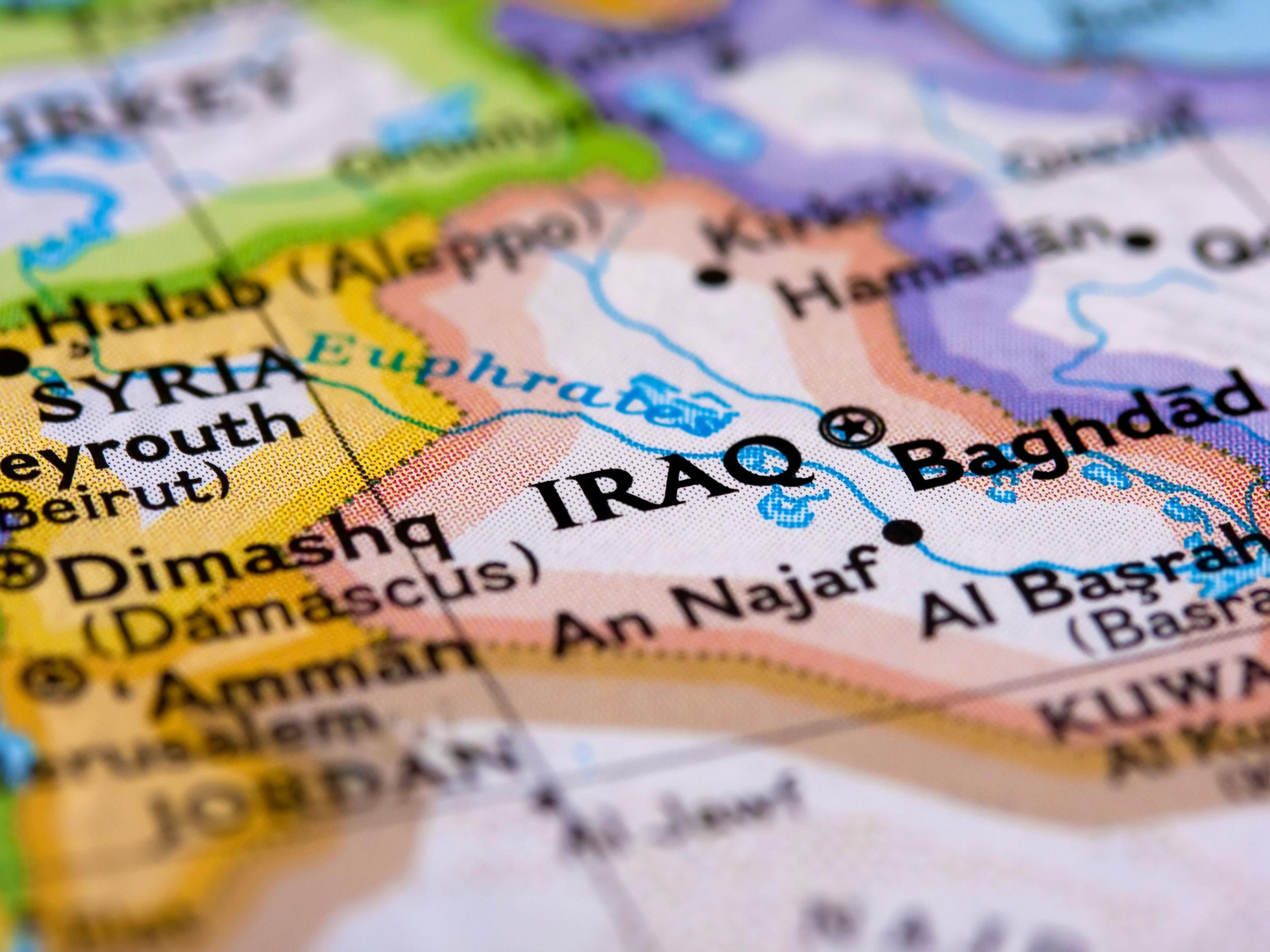How English words entered Arabic through the British empire in Iraq
Colonial occupation of cities such as Basra in the early 20th century led to some intriguing language swaps

The British “Mesopotamian Campaign” of the First World War took almost three years to get to Baghdad – and the occupying force faced many challenges once it arrived. In fact, Britain’s overwhelming predominance over Iraq from 1917 to 1947 was a time of rough and violent political and economic “communication”.
But the large number of English “loan words” in the Iraqi dialect of Arabic suggests that the communication was not always defensive. More importantly, the quality of borrowed words and the way they are twisted to fit Iraqi usage reflect the fact that Iraqis were fascinated by the language and culture of their occupiers, whom they ironically nicknamed “Abu Naji” after the commonly held belief that Iraqi monarch Ghazi bin Faisal had been murdered at the behest of the British by his driver, Abu Naji, in a faked car accident.
However, while I can clearly identify many words as English in origin – for example, biskit, tȏrch, rādīȏ, shȏrt – there are many other words altered enough to look like anything but English. These include timman, paicha, fuṣṣ glaṣṣ.
English loan words in the Iraqi dialect are found in almost all the aspects of daily life. Here I will focus on funny or unusual borrowings but first I will start with one in English.
Back to 1999, in a poetry lecture at al-Mustansiriya University in Baghdad, I still remember how thirsty I felt when I heard Professor al-Wasiṭṭi, while reading Eliot’s poem “Journey of the Magi”, pronouncing the word “sherbet”.
The summer palaces on slopes, the terraces,
And the silken girls bringing sherbet
He looked at us while we stared when we heard that word. “Yes,” he said. “It is our sherbet.” The poem was published in 1927 when the British were in Iraq, but the word came to English via the Ottomans in the 17th century.

The Iraqis could have borrowed the word from Turkish (or from English after 1914) but the word itself originally came to Turkish from Arabic sharāb or “drink”.
The word sherbet, meaning “juice”, is used only in Iraq. In 2001, my Syrian cousin, who was visiting Iraq for the first time, asked: “Why do you have signboards saying ‘She drank grape juice’?” I explained to him, while struggling not to laugh, that it is sherbet “juice” and not sherbat, meaning “she drank”. The word in both cases is written the same without case markings. My cousin, however, thought that we – both Arabic speakers – say asir for juice and not sherbet. It remains such a funny coincidence that the word sherbet returned to Iraq unchanged with the British, though at a high cost.
The word fuss means segment in Arabic, and glaṣṣ for cup is clearly from the English word “glass”. Together, fuss glass literally means “shiny segment of glass”. But few people in Iraq know that it is from the English “first class”. It is used to give the same meaning – something that is top quality.
The word ruz, meanwhile, is used both in standard and vernacular Arabic for “rice”. In Iraq, however, we say temmen. The word is believed to be “ten men”, which was a brand of Indian basmati rice. The myth says Iraqi farmers refused to supply the British with rice to feed their soldiers. Instead, the British imported “Ten Men”.
Iraqi porters used to hear British soldiers telling them to carry the sacks of “Ten Men” (assimilated into temmen), and thought it meant rice in English. Everywhere in Iraq, the word is still used for rice, which is an integral part of Iraqi cuisine.
It is widely known in Iraq that the name of a town called ṭwairij is from English (two way reach), too. While that made both the town popular and the myth true, the name is in fact Arabic: ṭariԛ (way or road), the diminutive form of which is twairiq – meaning “little road”. In the Iraqi accent, the “q” is pronounced as “j”. A similar example is another village in western Iraq near the Jordanian border, known as ṭraibil, which is thought to be from English “trouble” or “tribal”.
Again, while the two English words seem to be apt for the nature of the place, there is no clear evidence to support this hypothesis.
In 2007, while I was translating a formal document about architecture in the Syrian province of Deir Ezzor, I came across a word that took me three days to identify. It was the Arabic word wajjbah and I had never heard of it before.
I couldn’t find the word in the Arabic-Arabic or Arabic-English dictionaries that I had. When I asked my Syrian uncle, he pointed at part of his house that looked like a balcony but without a roof. I told him we call it paitcha in Iraq.
The question, however, remained: what does it mean in English? I had to call my father in Baghdad, who confirmed that this style of architecture became popular in post-British mandate Iraq. Although the word paitcha sounds like Turkish, I decided to limit my search to English.
I used Collins English dictionary and found the word “patio”. The word is Spanish in origin, so presumably found its way into Arabic via the Moorish occupation of the Iberian peninsula. There is a clear connection between the Spanish word “patio” and the Arabic word baha, however. Both have the same meaning. But patio in Iraq is paītcha – an Iraqi Arabic word, borrowed from English.
is a tutor of Arabic language and literature at the University of York. This article first appeared on The Conversation (theconversation.com)
Join our commenting forum
Join thought-provoking conversations, follow other Independent readers and see their replies
Comments
Bookmark popover
Removed from bookmarks